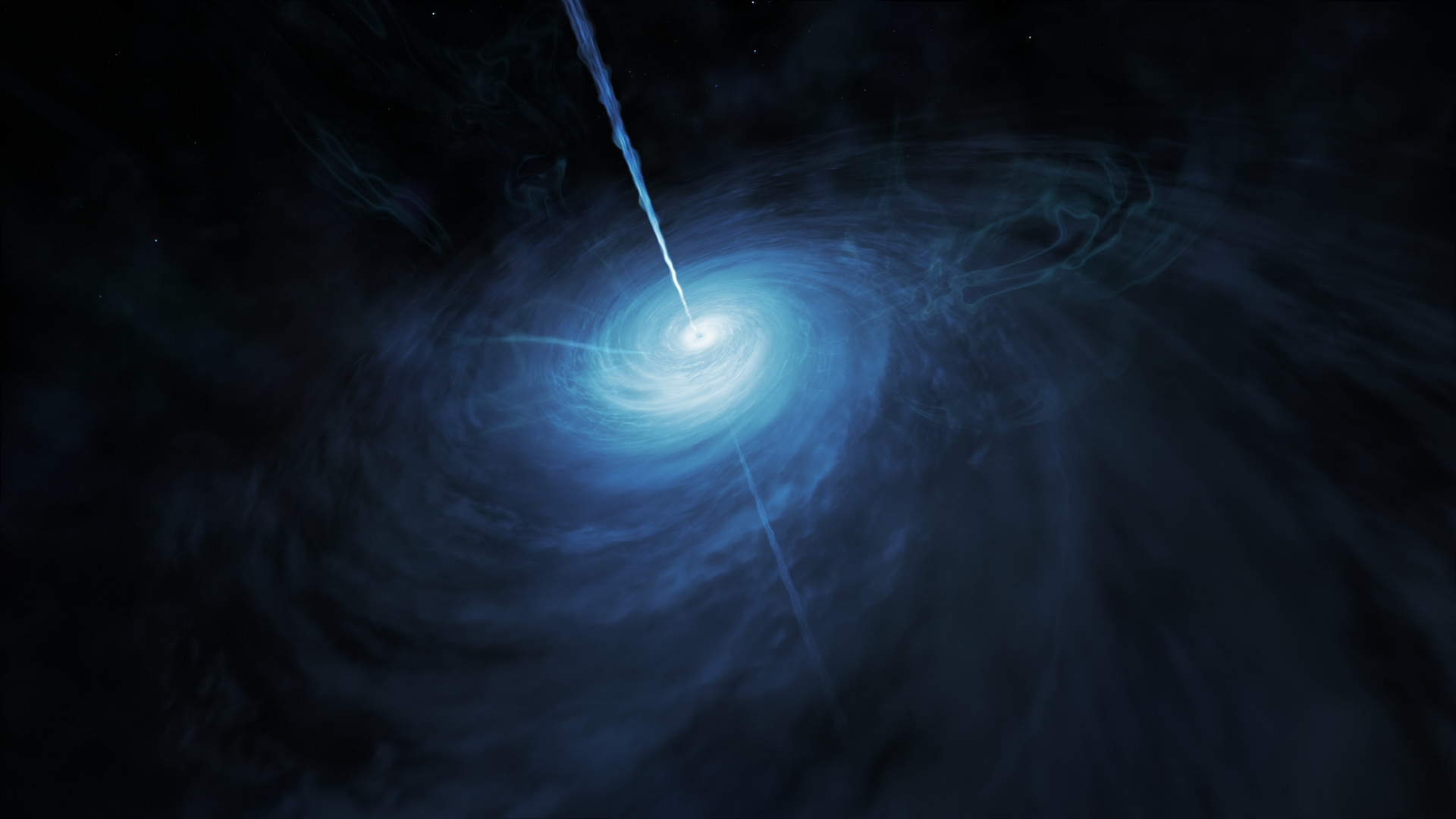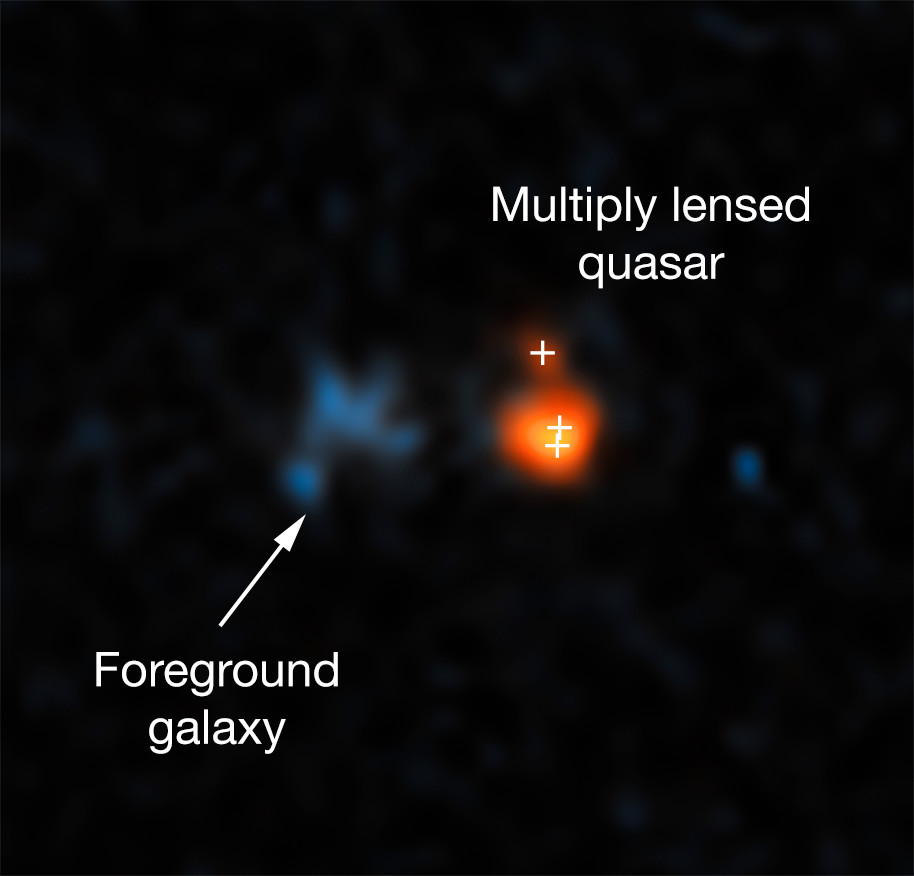A cosmic beacon from the dawn of the universe
The Hubble Space Telescope has succeeded in imaging an especially bright quasar from the dawn of the universe. As astronomers report in a paper, J043947.08+163415.7 is 12.8 billion light-years away. That also means that we can see 12.8 billion years into the past. When the light that is reaching us today was emitted from the quasar, the universe was still in its epoch of reionization.
Thus, by discovering this quasar, astronomers have the chance of observing the cosmos as a child. The quasar is approximately as bright as eleven billion Suns. Possibly 10,000 new stars are created in it every year (for comparison: the Milky Way produces approximately one star per year). However, that still wouldn’t make it bright enough for the Hubble to see the quasar. To discover it, an additional cosmic magnifying glass was needed in the form of another, much closer galaxy, whose gravitational forces focused the light from J043947.08+163415.7 like a kind of lens, so that the quasar appears 50 times brighter than it would otherwise.

